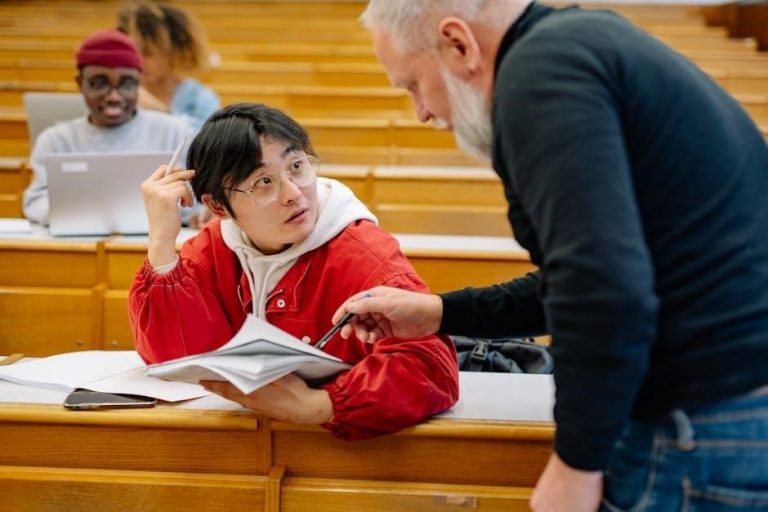Teacher interviews are crucial for educators to showcase their skills and philosophies, including PDF guides offering sample questions and answers, emphasizing preparation and strategies to impress hiring committees.
Importance of Preparation
Preparation is vital for teacher interviews, as it allows candidates to articulate their teaching philosophy, showcase classroom management strategies, and align their qualifications with the school’s values. Researching the institution, practicing responses using the STAR method, and reviewing common questions ensures confidence and clarity. Utilizing resources like PDF guides with sample questions and answers helps tailor responses to highlight relevant skills and experiences. Adequate preparation demonstrates professionalism and enthusiasm, setting candidates apart in a competitive field while emphasizing their commitment to student success and educational excellence.
Common Teacher Interview Questions and Sample Answers
Teacher interviews often include questions about teaching philosophy, classroom management, and lesson planning. Sample answers in PDF guides provide insights and strategies to address these topics effectively.
General Questions About Teaching
General teaching questions often focus on a candidate’s motivation, philosophy, and classroom approach. Common inquiries include, “Why did you choose teaching?” or “Describe your teaching style.” These questions aim to assess a teacher’s passion, values, and methods. Interviewers also ask about handling challenges, such as managing diverse learners or engaging disinterested students. Sample answers in PDF guides provide structured responses, emphasizing the STAR method to articulate experiences effectively. These resources help candidates align their answers with the school’s culture and expectations, ensuring a cohesive and impactful presentation of their teaching philosophy and practices.
Classroom Management Strategies
Classroom management is a critical topic in teacher interviews, with questions focusing on maintaining order and fostering a productive learning environment; Common inquiries include, “How do you handle challenging behaviors?” or “How do you ensure student engagement?” Sample answers in PDF guides suggest emphasizing consistency, clear expectations, and positive reinforcement. Strategies like proactive planning and building student relationships are often highlighted. Candidates are encouraged to provide specific examples, demonstrating their ability to create a structured yet supportive classroom atmosphere. These responses showcase a teacher’s ability to manage diverse student needs effectively.
Preparing for a Teacher Interview
Effective preparation involves researching the school, practicing responses to common questions, and using tools like the STAR method to structure answers, ensuring confidence and readiness.
Researching the School
Researching the school is essential to tailor your responses and demonstrate alignment with their mission and values. Understanding their curriculum, student demographics, and extracurricular activities helps you address specific needs. Familiarize yourself with their teaching philosophy and classroom management styles to show how you can contribute effectively. Reviewing the school’s website, social media, and recent achievements provides valuable insights. This preparation enables you to ask informed questions and highlight your relevance to their educational goals, showcasing your enthusiasm and readiness to integrate into their community.
Practicing Responses
Practicing responses is vital to confidently address teacher interview questions. Review common questions and prepare thoughtful answers using the STAR Method. Focus on highlighting your teaching philosophy, classroom management strategies, and experiences. Mock interviews with colleagues or mentors can simulate real scenarios, helping refine your delivery. Use PDF guides and online resources to familiarize yourself with sample answers and adapt them to your experiences. Recording your practice sessions allows you to identify areas for improvement, ensuring clarity and conciseness in your responses. This preparation enhances your ability to articulate your skills and passion effectively during the actual interview.

Behavioral Interview Questions for Teachers
Behavioral questions assess past experiences, using the STAR Method to demonstrate classroom management, lesson planning, and student engagement, aligning with topics in teacher interview PDF guides.
Examples and Response Techniques
Behavioral questions often focus on specific classroom scenarios, such as managing challenging students or implementing successful lesson plans. Using the STAR Method (Situation, Task, Action, Result) helps structure responses effectively. For example, when asked about classroom management, a teacher might describe a situation, outline their approach, detail the actions taken, and share the positive outcome. Sample questions include, “How would you handle a disruptive student?” or “Describe a lesson that successfully engaged students.” Practicing these responses with the STAR framework ensures clarity and confidence, showcasing problem-solving skills and teaching effectiveness.
Teaching Philosophy and Style
Your teaching philosophy and style are central to your identity as an educator. Emphasize student-centered approaches, adaptability, and the integration of technology to foster engaging learning environments.
Developing a Personal Philosophy
Developing a personal teaching philosophy is essential for articulating your approach to education. Reflect on your values, experiences, and beliefs about learning. Consider how you foster student growth, encourage creativity, and adapt to diverse needs. Your philosophy should resonate with your teaching style and the school’s culture. PDF guides offer insights and sample answers to help you craft a meaningful philosophy. Emphasize your commitment to student-centered learning and continuous improvement. Ensure your philosophy aligns with current educational trends and demonstrates your passion for teaching.
Classroom Management and Lesson Planning
Effective classroom management and lesson planning are vital for successful teaching. PDF guides provide strategies for organizing classrooms, engaging students, and delivering structured lessons, ensuring optimal learning environments.
Effective Lesson Planning
Effective lesson planning is a cornerstone of successful teaching. PDF guides provide detailed strategies for creating structured, engaging lessons aligned with educational standards. They emphasize clear objectives, differentiated instruction, and integration of technology to meet diverse student needs. Tips include incorporating hands-on activities, formative assessments, and real-world applications to enhance learning. These resources also highlight the importance of flexibility and adaptability in lesson design, ensuring teachers can adjust plans based on student responses and classroom dynamics. By following these frameworks, educators can deliver impactful, organized lessons that foster academic growth and student engagement.

Integrating Technology in Teaching
Integrating technology enhances teaching by utilizing tools like interactive whiteboards and educational apps, fostering engagement and personalized learning, as highlighted in PDF guides for teacher interviews.
Tools and Resources
Effective integration of technology in teaching involves using tools like interactive whiteboards, educational apps, and Learning Management Systems (LMS). These resources enhance engagement and personalized learning. PDF guides provide insights into selecting and implementing these tools, offering strategies for seamless technology integration. They also include examples of successful implementations and tips for leveraging multimedia content. By utilizing these resources, educators can create dynamic, tech-rich learning environments that cater to diverse student needs and improve educational outcomes.
The STAR Method for Answering Questions
The STAR Method (Situation, Task, Action, Result) helps structure responses to behavioral questions, providing clear examples from experience, as outlined in teacher interview PDF guides.
Applying STAR in Interviews
Using the STAR Method in teacher interviews helps candidates provide structured, impactful responses to behavioral questions. By breaking down answers into Situation, Task, Action, and Result, educators can clearly demonstrate their problem-solving skills and teaching experiences.
This technique, often highlighted in teacher interview PDF guides, ensures responses are concise and focused. For example, when asked about classroom management, a candidate might describe a challenging situation, their task to resolve it, the actions taken, and the positive result. This approach showcases effectiveness and aligns with the expectations of hiring committees.

Tailoring Answers to the School
Tailoring answers to the school involves researching its culture and mission, ensuring responses align with its values and specific needs, demonstrating enthusiasm for their programs.
Understanding the School’s Culture
Understanding the school’s culture is vital for aligning your teaching philosophy with their values. Researching the institution’s mission, community involvement, and educational priorities helps tailor your responses. Familiarize yourself with their programs and initiatives to demonstrate enthusiasm and alignment with their goals. This preparation shows your commitment to contributing effectively to their environment. By highlighting how your methods and beliefs resonate with their culture, you can present yourself as a strong candidate. Additionally, reviewing downloadable PDF guides for teacher interviews provides insights into crafting answers that reflect the school’s specific values and expectations, ensuring a cohesive presentation of your qualifications.

Professional Development and Growth
Continuous learning and professional growth are essential for teachers, with PDF guides offering insights into showcasing ongoing development and passion for education during interviews.
Ongoing Learning
Ongoing learning is vital for teachers to stay updated on educational trends and methodologies. Engaging in professional development, such as workshops and courses, demonstrates commitment to growth. Teachers can highlight their participation in training programs and how they incorporate new strategies into their teaching practices. Discussing specific instances of applying learned techniques in the classroom showcases adaptability and dedication to improvement. Additionally, reflecting on how these experiences enhance student outcomes and align with school goals emphasizes a proactive approach to professional evolution. This continuous pursuit of knowledge not only benefits personal growth but also enriches the educational environment.
Preparation, research, and practice are key to acing teacher interviews. Stay authentic, confident, and tailored to the school’s culture for success.
Additional Resources
Download comprehensive PDF guides offering 35+ teacher interview questions and sample answers. These resources provide expert tips, insights into school culture, and strategies like the STAR method. Access printable materials, behavioral question examples, and advice on showcasing teaching philosophies. Utilize these tools to refine your responses, ensuring confidence and alignment with the institution’s values. Explore specific guides for primary, elementary, and subject-specific roles to tailor your preparation effectively.
